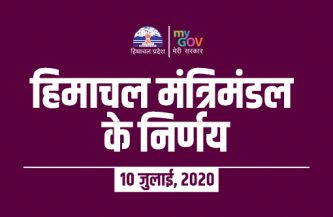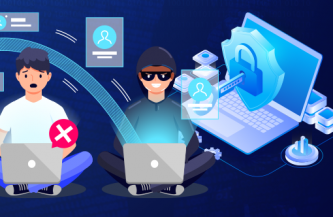The Digital Revolution That India’s Exam System Needs

As the government takes steps to restore trust in the testing process, technological advancements offer solutions to ensure credible and efficient testing.
In response to mounting concerns about the integrity of competitive examinations, the government has taken swift, decisive action to rectify the issues. Instances such as the postponement of the NEET-PG exam and allegations of paper leaks during NEET-UG retests across six cities, along with the recent UGC NET paper leak, have understandably raised serious doubts among students nationwide about the fairness and reliability of these crucial exams. However, the Indian government’s proactive steps, which include implementing leadership changes at the National Testing Agency (NTA) and establishing expert committees, demonstrate a clear commitment to restoring trust and ensuring the integrity of the examination process. These actions are not just about addressing immediate challenges but also signify a long-term strategy to rebuild confidence and ensure fairness for all students.
To ensure transparent, smooth, and fair conduct of the exam, the Ministry of Education has established a High-Level Experts Committee. This committee aims to deliver within two months actionable recommendations that will reform examination processes, enhance data security protocols, and potentially restructure the NTA to better safeguard against future breaches. Furthermore, the involvement of the CBI signifies a commitment to a thorough, impartial inquiry that will not only identify those responsible but also uncover systemic weaknesses that allow such breaches to occur. Additionally, the government has introduced the Public Examination Act to curb unfair practices and deter potential wrongdoers. This act imposes stringent penalties, including fines up to Rs one crore and imprisonment for up to 10 years for those found guilty of compromising examination integrity. These measures are essential to send a strong deterrent message and ensure the sanctity of public examinations.
While the immediate actions are robust and necessary, further steps are crucial for the long-term security and integrity of the examination system. For online examinations, implementing cutting-edge encryption techniques and multi-factor authentication can protect against unauthorised access. Blockchain technology can be employed to track and secure examination papers from creation to evaluation, ensuring that any tampering is immediately detectable.
For traditional, offline examinations, stringent security measures are vital at every stage. This includes tamper-evident packaging for examination materials, secure transportation, and rigorous checks at all handling points. Employing real-time GPS tracking for logistics and using digital watermarking can also significantly reduce the risk of leaks. Employing AI-powered proctoring systems can enhance the monitoring of examinations, reducing the chances of cheating. Biometric verification can ensure that candidates are who they claim to be, adding another layer of security to the examination process.
Additionally, conducting frequent, thorough audits by independent bodies can help identify vulnerabilities within the examination process. Transparent and regular reviews make sure that security protocols are adhered to and any discrepancies are swiftly addressed. To prevent future failures of digital locks leading to the manual opening of examination booklet boxes and delays in distributing question papers, rigorous maintenance schedules and backup protocols must be implemented. Regular maintenance checks should ensure digital locks are fully functional before exams. Additionally, staff should be trained in emergency procedures for secure manual overrides under supervision. These measures will help minimize disruptions and uphold examination integrity.
Integrity workshops emphasizing the virtues of fairness and integrity, alongside regular dialogue involving students, parents, educators, and policymakers, represent proactive measures that could significantly enhance examination integrity. Engaging stakeholders in these discussions would cultivate a vigilant community, thereby safeguarding against any unauthorized access to answer keys. These initiatives not only address immediate concerns but also lay the groundwork for long-term improvements in the examination process.
With over 10 million students registering annually for various exams under the NTA and a remarkable 12.3 million candidates in 2023 alone, the NTA stands as a global leader among examination-conducting bodies. This substantial participation underscores the influential role examinations hold in shaping the aspirations of India’s youth. In light of these numbers and India’s renowned education system, the government’s proactive measures are commendable and far-reaching, aimed at ensuring long-term integrity and reliability. These actions will not only address immediate challenges but also lay a robust foundation for safeguarding the dreams and aspirations of millions of students. This approach promises to strengthen trust in the educational system, promoting fairness and transparency for generations to come.
Looking ahead, the future of Indian competitive exams hinges on innovative strategies geared towards ensuring fairness and efficiency. As digital technologies continue to shape education, the adoption of robust digital security measures emerges as a critical imperative.
Implementing state-of-the-art encryption protocols and rigorous authentication mechanisms for online examinations will be a strong Defence against cyber threats and unauthorized access. This proactive approach not only safeguards the integrity of assessments but also develops trust among stakeholders. Embracing advancements in data analytics and predictive modelling can further optimise exam logistics and resource allocation, ensuring smoother administration and reduced operational challenges.
With the convergence of technological advancements and educational priorities, the trajectory of Indian competitive exams could lead to streamlined processes and heightened credibility. By adhering to these forward-thinking strategies, the educational landscape can uphold its commitment to fairness, transparency, and excellence, ultimately supporting the aspirations of students and enhancing the integrity of the nation’s educational system.
writer of this Article is Mr. Himanshu Rai ,Director, IIM Indore

















